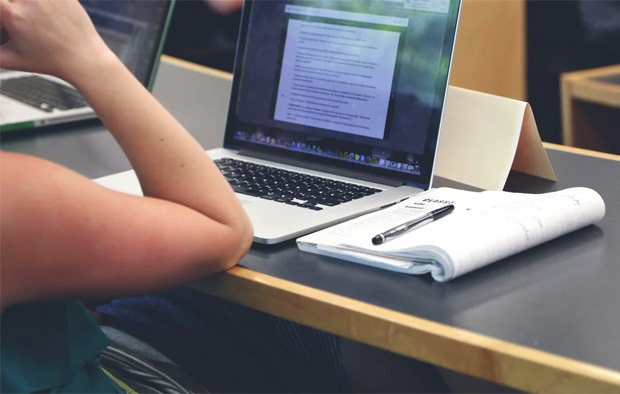Learn How And Why To Check Plagiarism

Learn How And Why To Check Plagiarism
Plagiarism allegations can cause a student to be suspended. Learn how and why to check plagiarism by reading this article.
What Are The Consequences Of Plagiarism In College?
If you use the words or ideas of another person without properly acknowledging them, you may be guilty of plagiarism. Plagiarism’s repercussions have been widely reported in the world of academics. Once plagiarism claims have tarnished an academic’s career, they can be wrecked.
Publishing is a necessary component of a distinguished academic career. Losing one’s ability to publish almost certainly results in losing an academic position and a ruined reputation. The specific penalties of plagiarism vary according to your institution’s policies and the nature of the plagiarism. However, some frequent consequences include the following:
- Penalties for failing grades
- Failure to your course
- Constantly faced with disciplinary action
- Suspension or expulsion from the institute
As part of their training, students are frequently asked to conduct extensive research and produce multiple papers. However, plagiarism occurs when a student fails to acknowledge the ideas or effort of another author. A student commits plagiarism when they use another person’s words or pictures and seek to pass them off as the student’s own.
Being discovered plagiarizing might have long-term ramifications, such as a black mark on your professional and academic record. To avoid plagiarism and other academic dishonesty, you must correctly cite your sources in your work and check your work on a plagiarism checker. Allegations of plagiarism might lead to suspension or expulsion.
Their academic record may show the ethics violation, preventing them from entering high school or another college. Plagiarism is taken very seriously in schools. Academic integrity committees are joint at educational institutions. Many schools suspend first-time offenders. Repeat offenders are typically expelled.

Consequences For Students For Different Types Of Plagiarism
Plagiarism in colleges might be intentional or unintentional but almost always has major ramifications. You have to use a plagiarism tool for checking your work before submission. Typically, your institution’s plagiarism policy is detailed in its code of academic conduct.
- Accidental Plagiarism
If you plagiarize unintentionally and have no prior infractions, most universities will reduce your grade or drop you from the course. Additionally, you may be expected to participate in training on plagiarism, the use of plagiarism checker can help you to avoid plagiarism. Certain universities may place you on academic probation due to plagiarism if you don’t check your work before submission.
- Deliberate Plagiarism
If you commit plagiarism on purpose (for example, by copying and pasting material or paraphrasing another author’s ideas without citing the source), you will almost certainly fail the project or course, face disciplinary action, and may even be suspended. Suppose your institution discovers that you have committed direct plagiarism (i.e., by submitting a paper that is entirely or partly the work of another person and passing it off as your own). In that case, you risk being expelled from your program and university.

Three Strategies For Avoiding Plagiarism
While plagiarism is sometimes purposeful, it is frequently perpetrated unintentionally by students or professionals unaware of correct source attribution. It would help if you used plagiarism checker free software to avoid plagiarism. Avoiding plagiarism requires you to be extremely selective about where you obtain material and how you portray it in your texts.
- Whenever you jot down a quotation or an idea, make a point of noting the whole specifics of the source from where you obtained it.
- If you utilize someone else’s words—even if it’s only a brief phrase—make a point of clearly marking the quotation with quotation marks or blockquote style, and make certain you’ve quoted the author’s exact words.
- Whenever you quote or paraphrase from a source, include a citation to acknowledge the original author and demonstrate where you obtained the material to the reader. There are numerous reference styles, each with its requirements, but the most critical aspect is to cite correctly and consistently. Citation machines can assist you in this endeavor.
Even if you are convinced that you have not plagiarized, an automated plagiarism detector might detect errors such as missing citations and paraphrased parts that are too similar to the original text.

Why Do You Have To Check Plagiarism?
Plagiarism has serious consequences in academia and other research-based fields. Plagiarism charges might affect your career and research funding. This can have immediate and long-term consequences. The Journal of Korea Medicine and Science published a plagiarized manuscript. After being caught, they were banned from submitting for five years.
Copying is illegal. Copyright absolutes no one can use another person’s work without citing it. Written work is protected from plagiarism by law and we need to do our best to prevent making any mistakes and ensure we create original work and cite properly when applicable.
Plagiarism has far-reaching effects on everyone. Plagiarism is an ethical and legal offense that is not excused by ignorance or stature. Learn about plagiarism before you start writing and use plagiarism checker free software to double check everything. The rules are simple to grasp. If you are unsure about it, use an online plagiarism checker before submitting your work. Laziness or deception can harm a reputation, a job and cause legal issues.
Guest Article.




